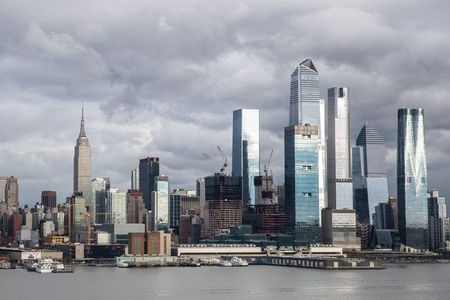By Marc Jones
LONDON (Reuters) – The strong economic recovery in the United States has led to a record number of corporate credit rating upgrades this year, figures from S&P Global showed on Thursday.
The combination of vaccine rollouts, reopening the economy and ultra-low borrowing costs has boosted firms’ finances and made debt piles more manageable.
S&P said it had made a record 121 upgrades during the second quarter and 220 since the start of the year although that was still well below the 715 downgrades during the first half of last year as the pandemic spread.
Most of the upgrades in recent months have been of lower-rated firms with 58% of all upgrades of issuers rated ‘B’ and lower. They have also been led by several of the sectors hardest hit by the pandemic, and about half were of issuers that had been downgraded since the start of 2020.
The proportion of firms at risk of downgrades also fell by eight percentage points to 19%, and is now below its long-term average of 22%.
“This steady decline points to a further decrease in downgrade potential and indicates the number of quarterly downgrades should continue to fall,” S&P said.
The surge in oil and gas prices over the last 12 months mean the sector’s negative rating bias has fallen 39 percentage points this year, the most of any U.S. sector, although it remains fractionally above the long term average.
The retail and restaurant sector’s negative bias has fallen 32 percentage points this year, the second most among all sectors, while the media and entertainment sector’s 33% negative bias is the highest despite a 20 percentage points drop.
“We expect the recovery of pre-2020 credit metrics to be uneven, with the hardest-hit industries of out-of-home entertainment and hotels not expected to recover before 2023 and even later for the cruise industry,” S&P said.
(Reporting by Marc Jones; Editing by Chris Reese)





